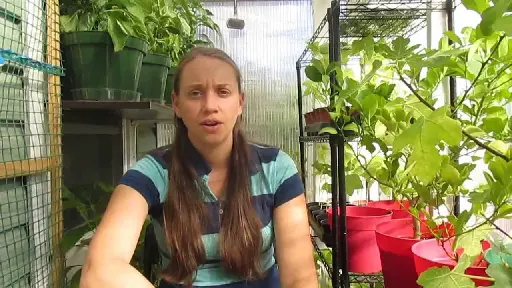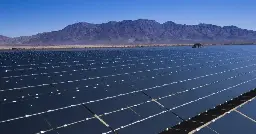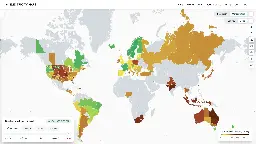That’s too specific for me to turn one up; most of it is in the form of people saying “i’m doing regenerative ag, pay me” and doing no measurement and making all sorts of wild claims.
Big negative claims apparently backed by nothing.
There are some serious limits to its scale as well.
Gabe Brown's regenerative ag farm is 5000 acres. That's a specific claim. You can even visit his farm in person.
Without accounting and auditing to track what’s going on, you often don’t get great results.
You can say the exact same thing about the things you propose... so again, where are we? Please consider this line of reasoning and ask yourself why you're so quick to use it.
Regenerative agriculture is ill-defined, and there’s a lot of fraud in that space when it comes to carbon sequestration claims.
Can you show me a lot of fraud in regenerative agriculture in the context of USDA NRCS SOM tests? I'd like to see it.
What you describe (using fossil fuels) is a worst case scenario and not a requirement. I could turn the argument around and say don't use the heat pumps you recommend because after all, they require electricity, which requires fossil fuels. And then where are we?
You say that CDR is expensive, but it's not. As proof I'll give two examples:
- companies that make and sell biochar
- regenerative agriculture that sequesters many tons of carbon in soil while being more profitable than conventional agriculture
You can make biochar at home and it's not expensive. The finished product is a valuable commodity.
You can get to personal net zero but not with offsets.
You make an important point: constitutionally-protected speech is the strongest link in their defense.
These people almost always have social media accounts, personal website hosting, and other business arrangements. None of this business is constitutionally protected and all of these business partners can be identified and many can be persuaded to cut ties. For years people have been using vague untargeted appeals to decency and it has gotten no results at all. We need to target their business partners with boycots and consumer education in the same way that wish.com became a synonym for low quality.
I certainly support that.
Not saying it can't be done, just that it isn't.
We should work toward proven solutions instead.
The article says:
The Golden State’s poorest residents — those already enrolled in discounted rate programs — would pay small fixed charges.
and
Millionaires and billionaires would be slapped with the same fixed charges as middle-class families struggling to get by
Maybe I'm misreading, or maybe the article is poorly written, but it sounds like everyone would be paying fixed fees.
Setting a fee based on income sounds super error prone and vulnerable to gaming in the same way that the rich can avoid taxation. Imagine a CEO making $1 in salary with the rest in stocks, how would that be charged? Or imagine $1 in salary, but the rest in free housing, food, transportation, etc. What's the overhead for properly monitoring all this? It must be huge to do a credible job. We're already not doing it and repeating the same obvious error can only be assumed to be intentional.
Just remove base fees and charge people for their usage. Poor people already use much less electricity than rich people so they would save money under my proposal, while the people who use more would have to pay more.
in the form of flat fees on their monthly electric bills
Base fees are regressive and financially disincentivize progress.
If you want people to use less electricity, remove base fees and increase usage fees.
Another way of looking at it: imagine you had to pay a big fee to enter the grocery store, but once inside, everything was similarly priced. A potato would cost almost the same as a ribeye steak. You'd see lots of people walking out with steak, and as a result we'd have a major increase in agriculutural climate emissions.
Electricity is the same way. When everyone's paying base fees to artificially lower usage rates, poor people are subsidizing the extravagant usage of the rich.
Remove regressive base fees and charge people for the damage they do.
Ya, I know we did sixty shows last year and grossed over a billion dollars from it, but how about we quadruple the number of staff we have to pay to only do ten shows this year. It would be really nice if we paid hundreds of employees to live on a sailboat for three months out of the year. Not like the largest music company in the world is going to expect an increase in profits.
Who is "we" - are you employed by Taylor Swift or an affiliated company?
She's rich enough to be able to easily afford ANY travel type possible, without having to even ask the cost, and she chooses the dirtiest and most expensive one.
If she cared about climate change, she would just intrinsically understand that paying someone else to be a good person doesn't morally justify her being a bad person (aka, how carbon credits are marketed and sold).
Instead of taking a trans-oceanic flight, she could go on a container ship or sailboat. She's a musician and I bet these experiences would be vastly more inspiring than harassing college kids through lawyers.
For domestic travel she could use a vehicle powered by restaurant waste vegetable oil (WVO) instead of fossil fuel. Or she could take an EV charged by renewable sources. Ewan McGregor and Charley Boorman did a 13000 mile (21000km) electric motorcycle trip in 2019 from the southern tip of Argentina to Los Angeles called The Long Way Up, their 3rd such superlong trip, and their first on electric vehicles. They loved it and called it the future, and they had support from a prototype Rivian truck, which therefore advanced the space of electric cars as well. MANY people are doing this, some rich, some poor. For our climate emissions, there's no time left for excuses either for Taylor Swift or for ourselves.

YouTube Video
Click to view this content.
This is almost as green and carbon-free as possible. It's accessible to normal people, it doesn't require exotic hardware, labor or permitting, it provides good heat and fresh air, all with little ongoing effort once installed.
My background is in permaculture but there's significant overlap between that and solarpunk. My point of view is that permaculture and/or solarpunk work at the individual level. They work even better at the household level, and even better at the community level, even better nationally, and best internationally.
You don't have to change the whole world to be successful. You're not responsible for the entire world, only your own actions. So be a part of the solution, lead by example and persuade others to do the same. But you're not expected to carry 8 billion humans on your shoulders, all the other animals, the trees, the weight of all of the oceans, etc. People only believe this because it gets repeated incessantly but take a step back and realize how obvious it is that you can't be expected to be personally responsible for basically all of existence. You're not omnipotent. Let go of weird expectations that anyway are probably promoted by fossil fuel types to overwhelm people into inaction.
Be responsible for your own actions, be part of the solution, and let go of the rest.
Howarth found that LNG’s total emissions are between 24 and 274 percent more than coal’s, depending on how the LNG is transported.
Horrific.
We're making the same mistake now as we did after the Iraq War. During/after that war, there was a massive push to decrease US reliance on Middle Eastern oil. That was great, but unfortunately, most of the effort centered on domestic oil production, including fracking, which is even nastier than conventional oil production. We should have been building out and transitioning to renewables instead.
Now we have the same basic problem: Europe has realized it can't rely on Russia for its fossil fuels and is now greatly increasing consumption of LNG, which is even nastier (for climate emissions) than conventional fossil fuels, even apparently coal, which I didn't know was possible. That's insane!
Let's learn from this and build as much wind, solar, and other renewables as quickly as possible.
And will you always be allowed enough water for it?
That's an essential element to consider, and the answer is: locally appropriate plants, compost, mulch, rainwater harvesting, and greywater. All of these things will work regardless of municipal water shortfalls, political problems, etc.
Examples of locally appropriate plants: local so-called "native" perennials, and annuals that are well situated for local conditions. For example, tepary beans are great in desert areas while typical beans from most seed packets are not. And conversely, tepary beans don't fare well outside of a desert. Plants evolved growing without us. Picking the right varieties and then giving them a boost with mulch and greywater gives awesome results.
My rooftop solar is actually fairly typical, it's just that we've been very aggressively reducing electricity usage since the solar was installed. Home heating is the biggest user of electricity here, and so we've reduced winter air temperature in the house to about 54-60F (about 12-15.5C), while using the techniques in the book Heating People, not Spaces by Kris De Decker, author of Low-Tech Magazine, and other techniques as well. Just as an example, instead of heating the house overly hot all day and watching TV after dinner, we'll keep the house cool, use an electric mattress pad on the pull-out couch, and snuggle while watching TV. This not only uses almost no electricity, but it's also more fun.
We also haven't used our clothes dryer a single time in 4 years now, using the clothesline instead, despite living in a cold place (USDA Zone 5). We look ahead on the 10-day forecast to anticipate best times and it works out fine. In a few days we'll do 3 loads of laundry, 1 each 3 days in a row. The savings aren't just the ~1kWh from each dryer load. Next time you do a load of laundry, go outside and put your hand by the dryer vent and feel all that indoor air being vented outside for up to an hour. Now imagine the same volume of cold winter air equalizing air pressure in the house by slipping through gaps in the doors. That's a LOT of cold air that is then reheated (typically using fossil methane, or electricity largely created by burning fossil fuels). It's the same story in summer: the dryer pulls in all that hot air that makes people use more AC or electric fans.
We've been doing extensive solar cooking for a few years now, typically cooking at least one thing about 6 days a week for 8 months of the year. Curry, bread, banana bread, corn bread, muffins, apple pie, sweet corn on the cob, veggies, pizza, pasta, leftovers, many many dishes. That keeps a ton of cooking heat out of the house while using no electricity, while also being the safest and most ethical cooking method (caveat: parabolic solar cookers are not safe, I've never used them and don't recommend them. They're pretty cool but should be treated with extreme caution, just as with a fresnel lens.)
These are just a couple changes we've made; there are dozens. Just to name one more, reducing our indoor shower/sink usage is worth mentioning, as it takes significant energy to heat water. Using a showerhead that uses 50% less water, and taking a 50% shorter shower on top, saves a ton of hot-water energy. Same for efficient sink aerators.
Some upcoming projects/plans:
- get a heat pump with mini splits
- work on passive solar heating, even though our house is poorly situated for it
- figure out how to safely pull enough snow off the solar panels after a snowstorm, possibly using a telescoping handle and squeegee
- improve shading for summer (we don't use AC, but still...)
- get a heat pump based water heater
If you want to get started saving money and carbon, I'd suggest lowering your winter house temp by one degree. Once you've adjusted and kinda forgotten about the change, lower it again by one degree. Keep doing this over a period of time and do it slowly so you can stick with it, making it a change that lasts the rest of your life. Do the same in summer, increasing the temperature slowly from the previous normal. At first the change is kind of meaningless, it's so small, but later you'll start looking for ways to comfortably go further. You'll find or invent ways to hold on to heat longer in winter, and get rid of it faster in summer.
Propane isn't a fossil fuel, it's a byproduct of fossil fuel processing/refinement, and understanding this matters. You can't mine or harvest propane like coal or petroleum because propane is not a fossil fuel. It's a byproduct. Once we stop using fossil fuels, propane will go away.
Propane has an extremely low GWP (global warming potential) compared to other refrigerants. Anyone who has a refrigerator, freezer, air conditioner, or heat pump, is using refrigerants. The most common refrigerants are R-22 (chlorodifluoromethane) with a GWP of 1810 (1810 times worse than CO2) and R-410a with an approximate, difficult-to-calculate GWP of 2088. There's also R-32 (difluoromethane) with a 100-year GWP of 675. Depending on who you ask, propane has a 20-year GWP of 0.072 and a 100-year GWP of 0.02, or a GWP of 3. In any case, that's WAY lower than what we're already using.
Probably the most ineffective way to attack fossil fuels is by attacking propane, while the most effective way to attack fossil fuels is to build wind and solar to make fossil fuels irrelevant. My rooftop solar produces over 200% of our usage, for example. That's a lot of coal my neighbors aren't indirectly burning.
We should very aggressively build wind, solar, and other renewables to replace fossil fuels. Until then, in the reality that we're living in, it would be harmful and kind of useless to attack propane.
BTW, do you want people burning more charcoal in their backyards? Because that's what they'll do if you snap your magic fingers and eliminate propane, and the fossil fuel industry will either put their fossil fuel byproducts into something else anyway or just release it into the atmosphere where it does its climate change damage. So you get the choice between: A) the current climate damage or B) the current climate damage and more.
But I agree it's embarrassing that people think so-called "natural gas" is renewable. That's almost surely in part because it has "natural" in the name, and that's why I support just calling it by its real name, which is methane.
SunZia is a megaproject by almost any measure. Pattern executives estimate that SunZia will generate enough power for three million homes. That’s three times as much energy as what’s produced by the largest wind farm currently in operation, the 1-GW Great Prairie Wind project in Texas. There are only six power plants in the entire country with a larger listed capacity than 3.5 GW.
Wow!
I would love it if we could treat this as a competition, to see who can build the lowest carbon-cost electricity service. A region of India has a competition like this, where villages do earthworks projects for rainwater infiltration and reforestation. The result is massive positive change. The same competitive spirit could be extremely powerful if applied to energy generation.

Lots of potatoes, some bell peppers, strawberries, a leek, tomatoes, 3 apples (1 not pictured), and 1 apex predator. This food will give us apple pie, grits and curry with the tomatoes, stir fried peppers, strawberries in oatmeal, leak soup, and a bunch of meals from the potatoes.
If you're interested in trying this yourself, the easiest place to start is by asking grocery store workers if they throw out any food, and if you can look through it. Some stores will be happy for you to do so. There are even some people out there on an exclusively freegan diet.
This is my main plan. Buy land and use it to run eco businesses like organics recycling (taking yard scraps etc. and turning it into compost and biochar); green energy production (solar and wind); and a permaculture microfarm and plant nursery for locally-appropriate plants and trees.
The Biden administration has updated the roadmap for solar development to 22 million acres of federal lands in the US West.

22M acres is 34375 square miles or 89031 square kilometers. The goal is to pick the best 700,000 acres (1094 sq miles / 2833 km2) for solar development spread over 11 western states.
We use a simple homemade compost toilet, saving 150kg of climate change emissions per person each year, and instead of creating sewage, we create compost.
I've done some projects listed here, including some that have no cost whatsoever. Nice resource!
Daily temps from 1940 to now. You can see that 2023 far exceeded anything prior, and that 2024 is far hotter than 2023.
Electricity Maps is a live 24/7 visualization of where your electricity comes from and how much CO2 was emitted to produce it.

See near real time carbon intensity of electricity generation around the world.